2019.08.10
Okinawa welcomes ancestor spirits on Obon

Eisa was originally a performance to entertain visiting ancestor spirits, and some characters in the groups, like the ‘chondara’ above, certainly fit the ghostly image of the other world.
Obon has a special place in the yearly calendar of Okinawan people. For three days from Tuesday, Aug. 13, through Thursday, local people observe, mainly at their homes, the three primary holidays on the Okinawa calendar.
Obon remains also the only remarkable event in Okinawa that is observed according to days in the lunar calendar. In mainland Japan, Obon has long been fixed to take place over three days from Aug. 13 through 15, but in Okinawa the date varies as it’s held from July 13 through 15th of the lunar calendar. (Surprisingly it’s the same dates for Obon schedule between mainland and Okinawan calendar in this year.)
Obon is a religious event, and thus not a national holiday. That’s why almost all shops, restaurants, banks and public offices are open as scheduled, although many private companies still close.
Obon is a time for celebrating life, and welcoming ancestor spirits home for a family reunion. It’s a Buddhist event, where ancestor spirits are believed to return to the human world in order to visit relatives.
Obon traditions also include Eisa that is performed to honor and entertain the spirits of the ancestors, and it’s traditionally the job of the young men in the community to perform.
Monday is the first day of Obon called Unkeh It’s a time for families to gather at the primary family residence to purify the home and its altar. Family members will place fruit, water, sake, tea and a pair of sugar cane stalks on the altar in preparation for the visiting spirits. Obon is also a time of gift-giving, and a time for sharing. Children and grandchildren return to Okinawa to pay homage to the ancestors. It’s a time for Ochugen, the presenting of gifts to relatives, bosses and colleagues in the workplace. Okinawa stores rack up hundreds of millions of yen in sales, with typical Ochugen gift sets running ¥2,000~¥5,000. Food seasonings, towels, beer and gift certificates are popular choices.
Wednesday, the final day of Obon, is Uukui, a time when the family gathers and celebrates with a lavish dinner to send the ancestral spirits back to the other world. A variety of foods are offered and special paper money, uchikabi, is burned as an offer to the spirits for use in the other world.




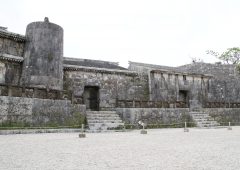 2024.07.07
2024.07.07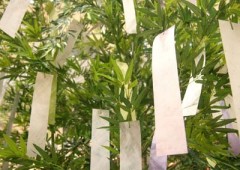 2024.07.02
2024.07.02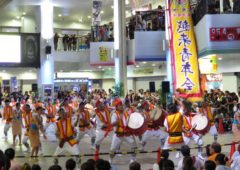 2024.06.11
2024.06.11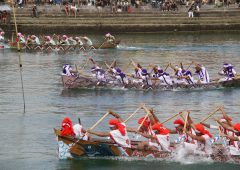 2024.06.03
2024.06.03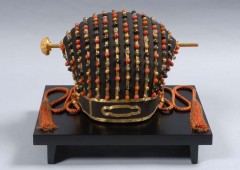 2024.05.02
2024.05.02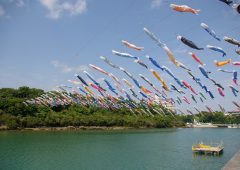 2024.04.26
2024.04.26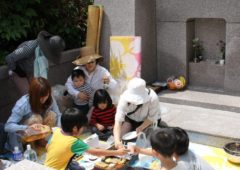 2024.04.04
2024.04.04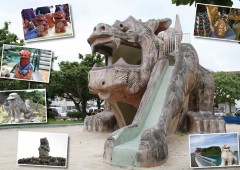 2024.04.02
2024.04.02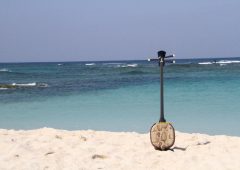 2024.03.03
2024.03.03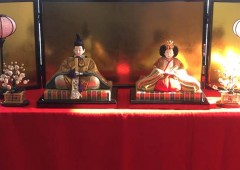 2024.02.26
2024.02.26






